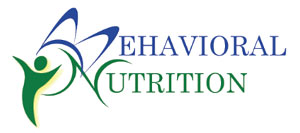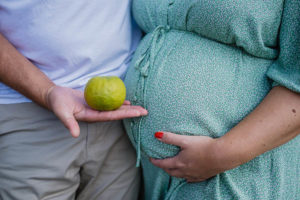Pregnancy can be a stressful and anxious time for some women and especially so for those who struggle with an eating disorder. During pregnancy, the growing baby receives all of its nourishment from the mother’s body. A healthy pregnancy requires extra dietary energy in the form of calories and women with eating disorders should consider if they can handle the increased nutrition requirements of a healthy pregnancy. In addition, pregnancy and motherhood require a great deal of strength, physically, psychologically, and emotionally. Those who struggle with eating disorders commonly experience symptoms of depression and anxiety. The accompanying weight gain and change in body shape can lead to recurrence or worsening of the eating disorder and associated symptoms. Conversely, the eating disorder may improve for some who begin to focus more so on the needs of the unborn baby as a motivator to develop normalized eating habits.
Anorexia Nervosa: Women with Anorexia are underweight and may not gain enough weight during pregnancy. Many women who have suffered from Anorexia for years are actually, infertile, however, those who are fortunate enough to conceive may risk having a baby with abnormally low birth weight and related health problems.
When energy and nutrient stores are low and not sufficiently restored through healthy eating, as in Anorexia Nervosa, the mother can become severely malnourished, and this, in turn, can lead to depression, exhaustion, and many other serious health complications. When stores of carbohydrates, proteins, fats, vitamins, minerals, and other nutrients are low, a woman’s body will drain them to support the growth and development of the baby, leaving the mother “running on empty”.
The average woman gains between 25-35 pounds during pregnancy. While this amount is required for a healthy pregnancy, for women with eating disorders, having to gain this amount can be very frightening. Some women with disordered eating are able to more easily cope with weight gain during pregnancy because they see it as a sacrifice for an important cause. But others may experience worsening depression as they struggle with the tension between the idea of weight gain and their body image issues.
Bulimia Nervosa: Women with Bulimia Nervosa who continue to purge may suffer dehydration, chemical imbalances, or even cardiac irregularities. Pregnancy heightens these health risks. Women with active bulimia have higher rates of miscarriage, premature delivery, gestational diabetes, and postpartum depression than women who have had bulimia in the past but are not currently experiencing symptoms. It is important to understand that whatever you do to yourself, you also do to your baby.
Binge Eating Disorder: Simply overeating from time to time may not be cause for alarm. But feeling a loss of control while eating an abnormally large amount of food, and doing so at least weekly, may lead to negative effects on the baby. Regularly eating a lot of food when not hungry, and sometimes to the point of feeling sick, may raise the risk of miscarriage, long labor time, which can increase birth complications, birth defects, and premature birth.
Women who are overweight due to binge eating and become pregnant are at greater risk of developing high blood pressure and too much protein in the urine (preeclampsia) which increases the future risk for heart disease, high blood sugar (gestational diabetes) which increases the future risk for Type 2 Diabetes, the need for a C-section, and infection after the baby is delivered.
Sometimes, babies born to moms with Binge Eating disorders weigh more than other babies born at the same term in pregnancy due to both gestational diabetes and the binge foods typically ingested. The baby gets nutrients from what the mother eats and drinks. Studies show that women who binge do not tend to binge on healthy, nutrient-dense foods, but rather tend to eat higher amounts of saturated fats, refined and processed foods, and foods that are generally unhealthy for both the mom and the baby.
Seek Recovery Before Getting Pregnant
Women with eating disorders should do their best to resolve eating-disorder-related weight and behavioral problems before they attempt to get pregnant. It is important to consult with your physician, counselors, and a registered dietitian before attempting to get pregnant. Pregnant women with eating disorders should inform their obstetrician about these problems which may require high-risk obstetrical care.
The changes in hormones and body shape can be a huge trigger for eating disorder thoughts and behaviors, and even after recovery, it can be difficult keeping the thoughts and behaviors at bay. Women need to be aware of their strengths and limitations when it comes to their recovery. Always inform health care providers and ask for help.
Perhaps the hardest part of this whole journey through pregnancy after and/or during an active eating disorder is relinquishing control. Recognizing that there is an element to pregnancy and birth that is uncontrollable, and learning to trust, let go of the need to control, and embrace change is key. Having a good support team is essential.
BOX…..
Risks for Mom + ED + Pregnancy
- Poor nutrition
- Dehydration
- Cardiac irregularities
- Gestational diabetes
- Severe depression during pregnancy
- Premature births
- Labor complications
- Difficulties nursing
- Post-partum depression
Risks for Baby + ED + Pregnancy
- Poor development
- Premature birth
- Low birth weight for age
- Respiratory distress
- Feeding difficulties
- Other perinatal complications
What if I am still struggling, and I get pregnant?
It is important to learn to accept your body for what it is right now, and be amazed at what it is doing! However, women with eating disorders who do become pregnant should also seek specialized medical and psychological help. Professionals can only address the specific needs related to pregnancy and disordered eating if the individual suffering is willing to be completely honest with them about their struggles.




